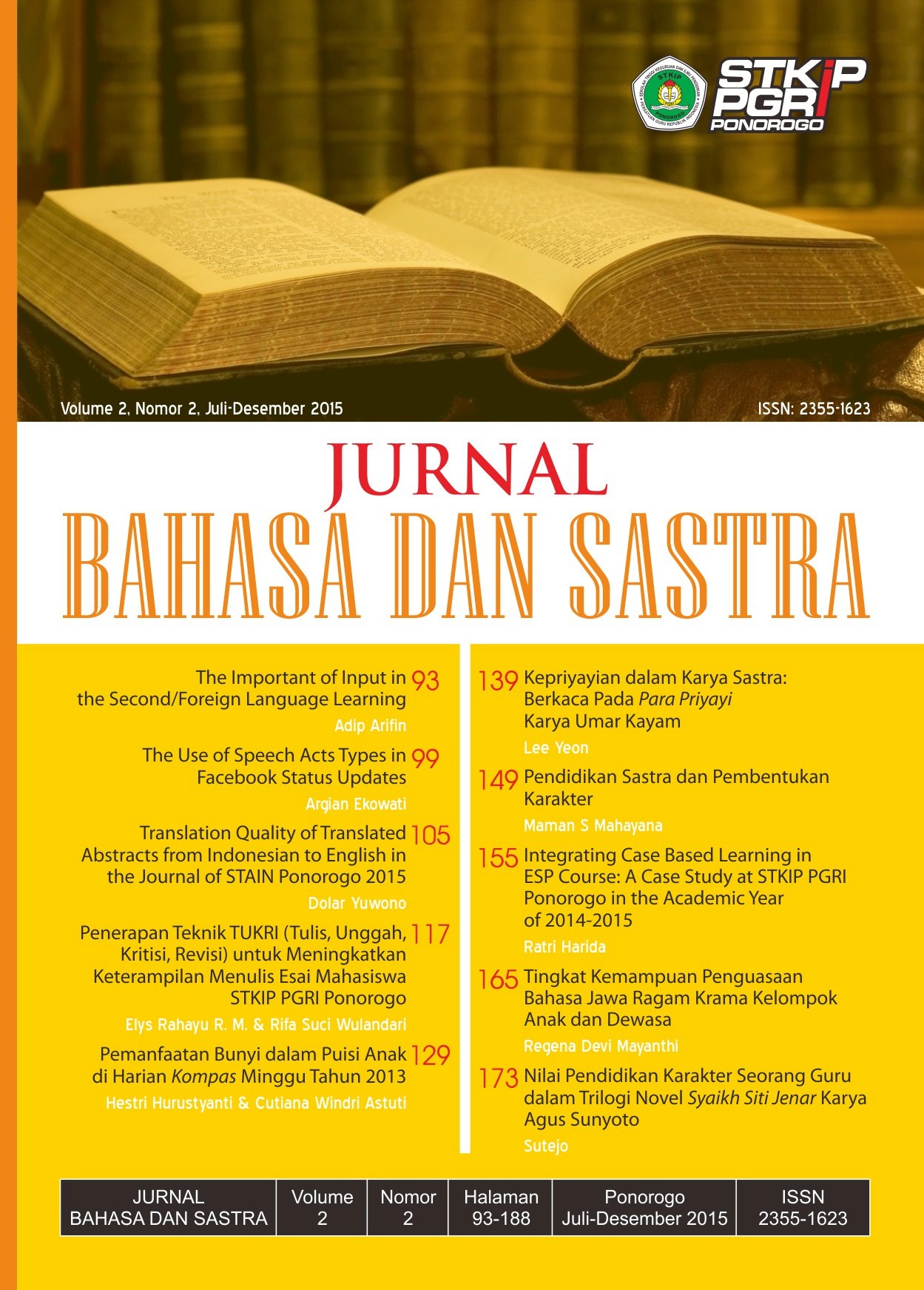THE IMPORTANT OF INPUT IN THE SECOND/ FOREIGN LANGUAGE LEARNING
Keywords:
Comprehensible Input, Second/ Foreign Language Study, The Role of InputAbstract
Learning a target language is actually a process of trial and error, whether as the first, the second or even foreign language. The success of second/ foreign language learning is influenced by many factors, including internal and external factors
of the language learners. The linguists, such as Ellis (1994), Brown (2000), Krashen (1985) and Gass (as cited in Ellis, 1994) emphasized one of the external factors which highly influences the second/ foreign language acquisition or learning is the availability of the input. This article is aimed to discuss the important of input in second/foreign language learning. The role of input becomes very significant in shaping the learners’ language acquisition and learning. The process of acquisition will not be successful if there is no input given to the learners. There are three major views on language input, they are behaviorist, mentalist and interactionist. Behaviorist viewed that language learning is advanced by making a stimulus and response connection, by creating new habits through reinforcement and practice. Mentalists view that every language learner has special equipment in his/her mind to learn language which is called Language Acquisition Device (LAD). They view that input is needed in language acquisition/ learning, but only to “trigger” the operation of the language acquisition device. While interactionists view that the processes of language acquisition are mainly influenced by the role of language environment and the learner’s internal mechanism in interaction activities.









